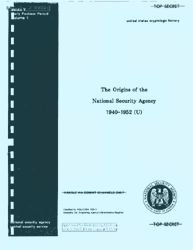The Crusades marked the beginning of a crisis in the worldwide spice trade, especially in central Europe, as the significant trade between. Arabs and Venetian merchants was disrupted. This development, in turn, produced what might be loosely termed “scientific” research into the origin of spices in central and western Europe. At that time, knowledge of the subject consisted of half-true tales passed down by Greek and Roman writers. But now physicians and others concerned with human health began to think about the active ingredients in herbs and spices, and an argument can be made that a shortage of spices was one of the stimuli that led to the development of Renaissance science.
The spice shortage also contributed to improvements in navigation technology, as several European nations competed to discover sea routes to India. In other words, this early exploration was not so much to bring Western civilization and Christianity to other peoples as to profit from the trade in precious stones, metals, and spices. Similarly, at a later time, ancient civilizations in Africa and Asia were set upon by European colonialists, and one of the precipitating factors for such imperialistic adventures was the competition of spice merchants from western and southern Europe.
The Portuguese found a sea route from Europe to India via the circumnavigation of Africa, which allowed them to bypass Arab intermediaries and bring such spices as pepper and cinnamon directly to Europe. They also discovered new spices, such as the “grains of paradise” (Aframomum melegueta) from western Africa, which they sold instead of pepper by bestowing upon the grains the enticing but misleading name “meleguetta pepper.”
Meanwhile, Columbus and others had hypothesized that another possible trading route to India lay to the west, and stimulated in part by the desire to find new sea routes for the spice trade, the Spaniards “discovered”“Western India,” or. America. However, the Europeans found not pepper but (chilli) peppers, white cinnamon instead of cinnamon, Indian cress instead of cress, as well as chocolate and vanilla. Such American spices became an important part of the wealth of the New World to be exploited by the Old.
By the start of the sixteenth century, western European countries were beginning to assert their control over world trade and politics, largely due to their quest for spices. Thus, the spice trade figured prominently in European colonialism and imperialism and, consequently, in shaping the world political order of today.




 World History
World History









